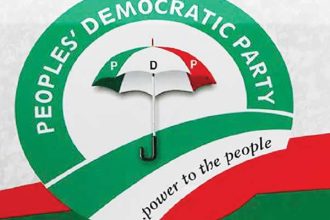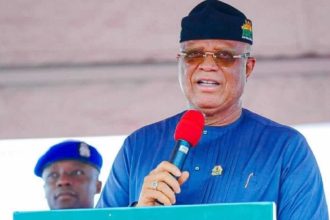The Federal Government has said Nigeria’s economy is on a steady growth path, driven by ongoing reforms and increasing investor confidence, despite the United States’ decision to impose a 15 per cent tariff on Nigerian exports.
Speaking during an interview on CNN on Thursday, Minister of Industry, Trade and Investment, Jumoke Oduwole, said the country would remain focused on diversifying its markets and strengthening domestic investment in line with President Bola Tinubu’s economic agenda.
“Even the toughest critics would agree that President Bola Tinubu has stabilised the economy. Monetary, fiscal and trade policies are now aligned to deliver value for investors,” Oduwole said.
PUNCH Online reports that the new tariff, announced by US President Donald Trump, takes effect at midnight (Eastern Time).
It comes as trade between the two countries remains largely balanced, with the US exporting $4.3bn worth of goods to Nigeria last year while importing mainly crude oil, fertiliser and other commodities from Africa’s largest economy.
Oduwole said Nigeria would not respond hastily to the tariff but would press ahead with reforms and market expansion.
“Nigeria remains responsive; we’re not reacting. We’re focused on our eight-point agenda of President Bola Tinubu. We will continue to support domestic investors and expand market access for Nigerian businesses,” she said.
According to the minister, while the US remains a strategic trading partner, the government is strengthening its African Continental Free Trade Area integration strategy and boosting non-oil exports, which rose by 24 per cent year-on-year in the first quarter of 2025.
“It’s mostly an energy trading relationship, but we are waiting to see what happens with AGOA in September.
“We are also growing exports to other African countries and expanding partnerships with Brazil, China, Japan and the UAE,” she added.
Oduwole said Nigerian fertiliser, lead, cocoa and other commodities have strong demand in emerging markets, while the government’s commercial investment programme launched in June is targeting infrastructure, agriculture and digital trade.
She listed recent reforms including foreign exchange market stabilisation, fuel subsidy removal, and a major tax infrastructure overhaul due in early 2026 as measures designed to strengthen investor confidence.
While acknowledging that the tariff could reshape global trade flows, the minister said Nigeria would seize opportunities for increased South–South trade and diversify its export destinations.









